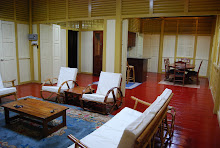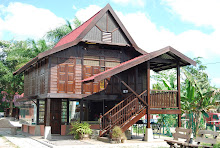Service Manual
The Odham’s book in question reminded me of the reasons for its purchase. I must have searched high and low for the copy in the Singapore bookshop to find the edition. I needed to know about motor car and its workings after having passed the driving test and acquired a driving license earlier on. Added to that there was a second hand Ford Prefect and later replaced by a Ford Consul at home in Brunei where I was working. The author’s opening forward “The life of a motor car is not indefinite, but with proper and systematic service and maintenance it can be prolonged considerably. Also the risks and delays on the road due to breakdown are minimized” was conclusive to want us to care about the car, thus this requirement to know briefly if not concretely its workings. This could be also be a start at DIY.
Similar weekend interest and indulgence amongst friends in auto-mechanics made the pursuit challenging. More than anything else the antique and classic models of cars produced in the 1950’s or earlier were a far cry from current models of the millennium. They needed care otherwise you may be stranded for minor hiccups i.e. block carburetor, dirty plugs, overheating or weak battery. Most weekends besides cleaning and washing the cars, our hands would be blackened, tarnished by black oil or grease. It was good healthy practice while adding bits of know-how.
Of course modern cars do not give such shortcomings, at least not regularly. The owners and drivers need not fear for any breakdown. Even if there is there will be quick assistance. Automobile Association Malaysia or car insurance companies would be at hand to provide towing and other services to members and owners just upon receiving telephone calls. House calls are also available. A new car with regular servicing would not easily fail its owner even after five years or more on the road. The fear would be only when there is an accident which regretfully takes place far too often. Be as it may, car owners and licensed drivers of yesteryears are categorically I would vouch to say more knowledgeable regarding the motorcar and its workings than current owners. I have come across drivers and owners who are flabbergasted when faced with using the jacks or changing tires not to mention making a ‘jump-start’ or recognizing either a ‘front or rear wheel’ driven vehicles. It would be a disaster if the vehicle is towed away without recognizing the former or the latter and more so when it is moved when in reality it had to have all the four wheels on a long truck.
Less I transgressed it is my intention to look at current vehicle models and the strength of the advertisements in relation to their specifications to wow the purchasers and the motorists at large. If before we had only saloons and opened tourer, now there are many versions to tempt the buyers. The discerning motorists have a hard choice with MPV (multi purpose vehicle), SUV (sports utility vehicle), Coupe, SAV ( Sports Activity Vehicle), Hatchback, Station Wagon, Pickup, Four Wheeled Drive etc offered for whatever reasons they want besides all the new fangled accessories, luxuries and technologies.
Now what do contemporary cars offer that were sorely absent in the cars of the earlier periods? In general all models have an engine (for motive power), transmission system (to drive the wheels), chassis or framework (to carry the engine, body, transmission, road wheels etc) and the body to accommodate driver and passengers. Modern development in the industry goes for efficient and competitive design giving the best of the best. Of course at a steep price for those who can afford. If half a century ago Britain captured the motor trade, now its frilling industry has been overtaken by Japan, Korea, Germany, France and even Malaysia. Vehicles from these countries flood the market and the latest models presented with pomp and glamour at annual international motor shows.
Motor Car Models Through the Years
Besides the two old Ford models, I had the pleasure of owning and driving a Hillman Minx 1725cc, a Wolseley 1500cc Mk 1, a Datsun SSS, a Volkswagen 1200cc, and yet another Ford, a ‘Cortina’ 2000cc. They were the earlier models before I had the pleasure of driving a 240 Volvo and much later the automatic models of Citroen, Volvo S80 and LXMode MPV Estima. All the earlier models were bought secondhand, including the classic Wolseley which I drove while studying in Canberra Australia. It would be a grand car had I brought it back to Malaysia. Perhaps it was fitting that the earlier exposure at DIY auto- repair helped me in no small way to care and maintain the vehicles at the minimum cost and selling them off at no big loss and especially where yearly test and checks are necessary before the car can be allowed to be on the road.
The Best Keeps Getting Better
What do the new models offer? Safety, Speed, Economy, Luxury, Beauty, Comfort, Driving Pleasure and Entertainment make up the list.
Prestige for people who wants it come with high cost and branded names. Perhaps a limousine for a name replacing the ordinary car is another feature. Each and every of the above characteristics built into the car provided accessories, technologies, safety features and systems that make one model better or more efficient than the other. Thus we read of such details as ‘cruise control with brake function’ , ‘adaptive headlights’, climate comfort laminated glass’, ‘navigation system professional’, ‘front and side airbags’, ’xenon lights’ on board computer’ etc.
You have only to be present at any showroom when a new model is displayed to observe the motorists reaction and behavior. Almost all will stare into the cockpit, jump into the comfortable driver’s seat holding on to the steering wheel and observe the spread of meters on the dashboard and imagining themselves driving a Formula One version model. They test the comfort seats and peep at the large rear booth, sports rim and the spectacular paintwork. They look casually at the neat engine. Not many will bother about the brake and anti theft system or safety features provided. Most are comfortable and please with the semblance of being in the cockpit of an airplane. That is the main criteria. If taken for a test drive, no robust handling, no test braking or a ride to test the shock absorbers as though it is a family car meant for the tarmac road only.
Acceleration from 0 to 100 in 5 Seconds
No wonder that car owners and drivers care less about understanding their vehicles now. Personally I too don’t bother to open the bonnet and look inside whether the engine oil needs top-up, the radiator requires extra water or the battery needs water too. I don’t look at the fan belt or check the air conditioning system either. The car now requires regular service not every month but after an interval of 15,000 kilometers or more. The battery is absolutely good for a year or more without any bother. Every thing is self regulated. You only need to fill it up with either petrol or diesel. The better the fuel the faster and better for the engine. Turn on the key, switch on the climate control, blast the audio system, kick off the brake system and press on the accelerator and you are moving away at a speed and rpm very much higher than what the Volkswagen or the Ford Prefect would have shown on the audiometer. Acceleration from the block touching 100 could be reach as fast as 5 seconds if you are at the wheel of a BMW 24M Coupe for instance.
For that reason the Odhams book and other likeable booklets plus the motor manuals of the current car in use remain where they are on the racks. Refer to when absolutely necessary.
The final question. Do you still enjoy driving and owning a motor car?

Thirty seven years ago we were driving the VW and the Wolseley Mk 1. Hj Hashim Abd Rahman seen standing next to his VW with his wife Zaiton and daughter Harzita and me with the Wolseley were then at Canberra ACT Australia. We had to keep the cars in good condition as the annual yearly appraisal would determine the road worthiness. Both the cars had airconditioning as well as good heater system. The Wolseley after three years was sold at the same purchasing price. I regreted for not bringing it back to Malaysia as the model was hard to find here. It was manufactured under the same brand/company as Riley and Austin.











2 comments:
Pak Non
Thanks for sharing on your drives. I remember my father used to have a Ford Prefect too. I think that was his first car. Incidently my first was also a Ford (Cortina Mk2) during my student days in Manchester.
Your posting also reminds me that I still have not finished my series of posting on cars which I have had the pleasure of owning and driving.
By using RentalCars you can discover cheap rental cars from over 49000 locations across the world.
Post a Comment